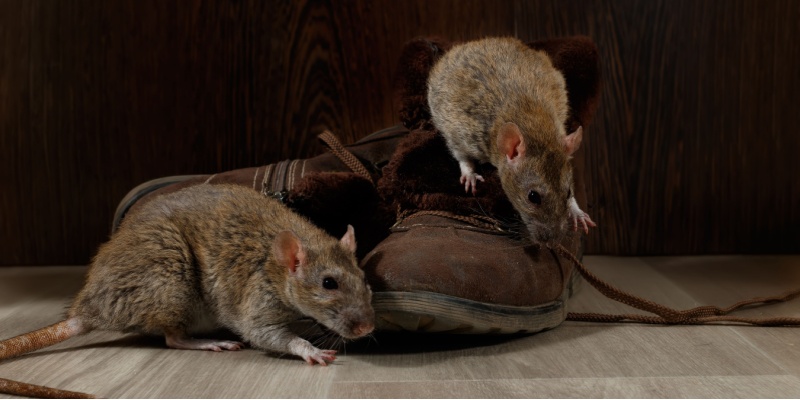Discovering a rodent infestation in your home can be alarming. Rodents, such as mice and rats, pose health risks and can cause significant damage to your property. If you suspect or confirm a rodent infestation, it’s crucial to take swift and effective action. This blog will guide you through the steps to deal with a rodent infestation and prevent future occurrences.
Identifying a Rodent Infestation
Before taking action, you need to confirm the presence of rodents. Common signs of a rodent infestation include:
- Droppings: Rodent droppings are small, dark, and pellet-shaped, typically found near food sources, in drawers, or along walls.
- Gnaw Marks: Rodents chew on various materials, including wood, plastic, and wires. Look for gnaw marks on food packaging, baseboards, and furniture.
- Nests: Rodents build nests from shredded paper, fabric, and insulation. These are often hidden in secluded areas, like behind appliances or in attics.
- Noises: Scratching or scampering sounds, especially at night, indicate rodent activity.
- Tracks: Footprints or tail marks in dusty areas can signal a rodent presence.
- Odors: A strong, musty odor can indicate a large infestation.
Steps to Eliminate a Rodent Infestation
- Seal Entry Points
- Inspect and Repair: Check for gaps and cracks around windows, doors, foundations, and utility pipes. Use caulk, steel wool, or metal mesh to seal openings.
- Weatherproofing: Install door sweeps and ensure windows close tightly.
- Eliminate Food Sources
- Store Food Properly: Keep food in airtight containers, and promptly clean up spills and crumbs.
- Secure Garbage: Use trash cans with tight-fitting lids and dispose of garbage regularly.
- Pet Food: Store pet food in sealed containers and avoid leaving food out overnight.
- Set Traps and Baits
- Types of Traps: Use snap traps, glue traps, or live traps, depending on your preference. Place traps along walls, behind appliances, and near suspected entry points.
- Baiting: Use attractive baits such as peanut butter, chocolate, or dried fruit to lure rodents into traps.
- Rodenticides: For severe infestations, consider using rodenticides (poison baits). Use caution and follow instructions carefully to avoid harming pets and children.
- Maintain Cleanliness
- Regular Cleaning: Keep your home clean and clutter-free to reduce hiding spots and food availability.
- Decluttering: Remove piles of newspapers, cardboard, and other potential nesting materials.
- Monitor and Recheck
- Regular Inspections: Continuously monitor your home for signs of rodent activity and recheck traps and bait stations.
- Follow-Up: Replace baits and reset traps as needed until the infestation is fully eliminated.
When to Call Professional Pest Control
While DIY methods can be effective for minor rodent problems, severe infestations require professional assistance:
- Persistent Infestation: If you’ve tried DIY methods and still see signs of rodents, it may indicate a larger problem.
- Health Concerns: Rodents carry diseases and can contaminate food and surfaces. Professional exterminators can ensure thorough removal and sanitation.
- Property Damage: Extensive gnawing and nesting can cause significant structural damage. Professionals can address the infestation and advise on repairs.
Preventing Future Infestations
Preventive measures are crucial to avoid future rodent infestations:
- Regular Inspections: Periodically inspect your home for signs of rodents and potential entry points.
- Yard Maintenance: Keep your yard tidy by trimming vegetation, removing debris, and storing firewood away from the house.
- Proper Storage: Store food, pet supplies, and trash securely to minimize attractions for rodents.
- Home Maintenance: Repair any structural damage and maintain weatherproofing to keep rodents out.
A rodent infestation in your home requires immediate and effective action. Identifying the signs, sealing entry points, eliminating food sources, setting traps, and maintaining cleanliness are essential steps to control and eradicate rodents. If you have a severe infestation or do not have the expertise to deal with rodents on your own, professional pest control services provide comprehensive solutions. By implementing these strategies and preventive measures, you can keep your home rodent-free and ensure a safe, healthy living environment for your family.

